Fall Maintenance Checklist
Posted on by WestAIR Heating & Cooling
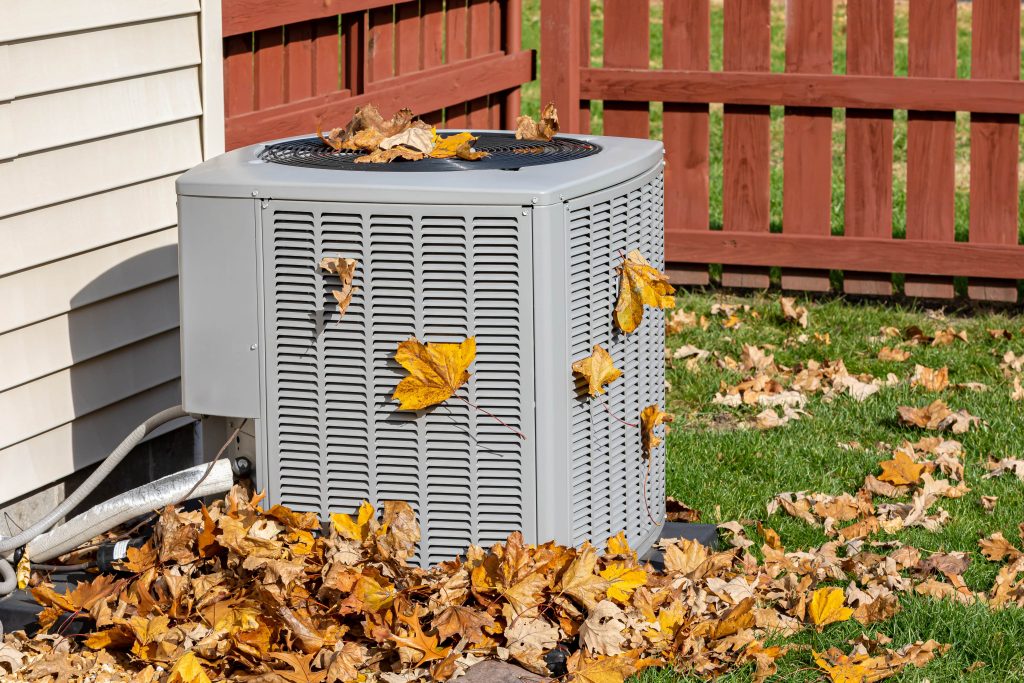
Fall is in the air and sweater weather is upon us. As you prepare your house with fall decorations like signs, pumpkins, and, of course, autumn scented candles, you may want to consider putting a few other things on your fall to-do list. Follow along in our blog to learn more about what you should put on your fall maintenance checklist.
Debris-Free AC and Heating
As you think about turning off your air conditioner and opening those windows, don’t forget about cleaning your HVAC unit for wintertime. The weather may be getting cooler, but you sure don’t need a broken furnace over the winter. Debris such as dust and pests can build up in your ductwork. This type of debris can be hazardous to you and to your home. So, get your ducts cleaned out for the start of winter. The same goes for your air conditioning. Unwanted debris could clog coils and damage your AC.
Check Your Air Filters
It’s true, you will be opening your windows more as the weather gets cooler, but once the snow starts to hit the ground, it’s time to turn the heat on. Make sure you are changing your air filters regularly. Changing your air filter helps keep a cleaner home, helps your health, it improves your HVAC system, and produces fresh indoor air.
Air Duct Cleaning
Get your cleaning gloves ready because it’s time to shine those air ducts. Your ducts need a good cleaning because the amount of time you are spending at home inside will increase. It will also help you to save energy in the long run. An air duct cleaning will help combat allergies and asthma, and it will help fight off any other sicknesses. If you don’t think you can clean your air ducts yourself, the professionals at West AIR Heating & Cooling are here to help.
Schedule a Fall Maintenance Visit
As summer comes to an end and you start thinking about all the fun things you are going to do in the next coming months, don’t forget about your annual fall cleaning. Checking your air filters, cleaning debris, and air duct cleaning are some of the things to make sure to have on your fall maintenance checklist. Contact WestAIR Heating & Cooling for all your fall maintenance needs.
This entry was posted in AC,Air Conditioning,Cooling,Duct Cleaning,Heating and tagged Cooling, Duct cleaning, Heating, Indoor air quality, WestAIR Heating & Cooling
Recommended Thermostat Settings for Winter and Summer
Posted on by WestAIR Heating & Cooling
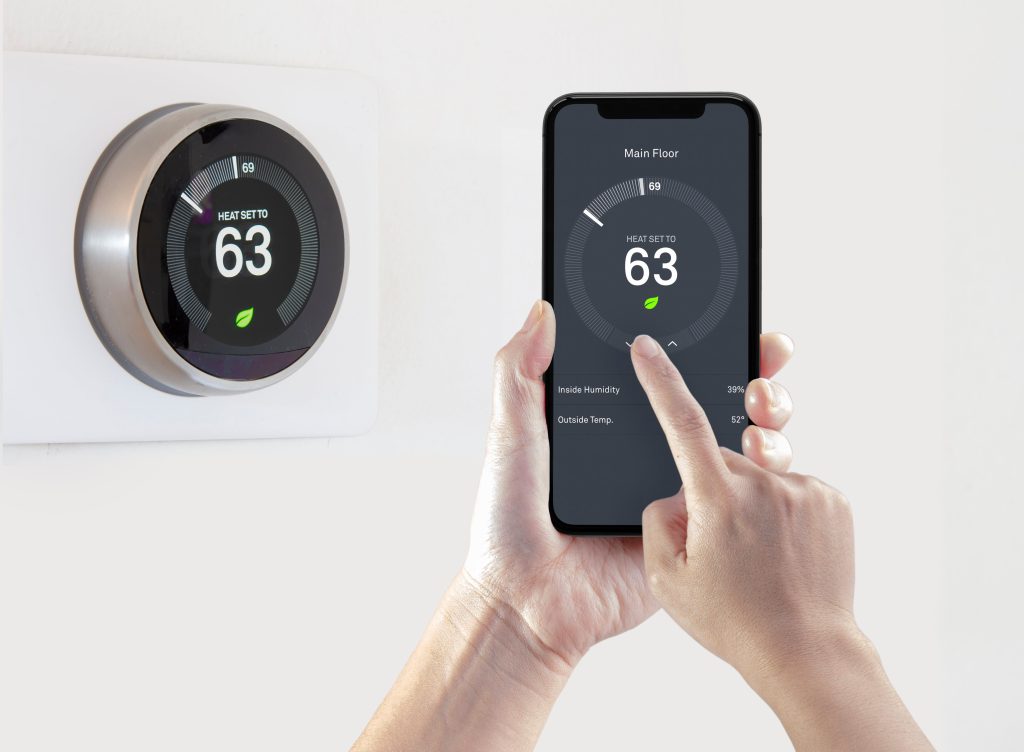
It’s that time of year again where the weather can’t decide what temperature it wants to be. It can go from 80 degrees in the afternoon and drop down to 62 degrees at night. With all this weather confusion, it may be hard to figure out what your ideal in-home temperature should be. You want to be comfortable in your own home, but you also want to save money. WestAIR Heating & Cooling is here to tell you about the best recommended thermostat settings for winter and summer.
Summer Thermostat Settings
We may all be in denial that summer is almost over, but the last day is in fact September 22. According to AccuWeather, most September days will be warmer than 70 degrees. So don’t worry about the snow and cold yet! We have some summer cooling tips for you to use. For a normal thermostat setting, the universal guideline is 78 degrees. This will keep your home nice and cold, and it will keep your energy bill down. This temperature is recommended for only the times that you are home. When you aren’t home, you should turn your thermostat up about 10 degrees warmer than your normal cooling setting. This will help save energy.
Winter Thermostat Settings
Apples, hot chocolate, and sweater weather are just a few things to look forward to this fall and winter. As summer comes slowly to a close, we must start thinking about winter and how we will stay warm at an affordable price. Winter can be long and, at times, freezing cold. The ideal temperature for your house in the winter is around 68 degrees during the day. On the other hand, when heating your house for the night, you should lower it to 60 degrees. This will save homeowners between 5 and 10% on their utility bills each year.
A Smart Thermostat
Do you ever have that feeling that someone is watching you and taking note of every move you make? A smart thermostat does just that. In the long run, it will help you with energy consumption. Most smart thermostats can track when you are home and when you aren’t. It will kick in the moment it knows you are about to arrive home because it is constantly tracking you. If you forget to adjust your thermostat on your way out the door, it will automatically adapt for you. Some also have sensors that can detect the number of people in the room, the humidity, and much more.
Settings that are Affordable and Comfortable
The comfortability of your home, in reality, is up to you. Whether you like it hot, cold, or even humid, the temperature you keep it at is what makes you feel most relaxed and at home and won’t hurt your budget.
If you feel like your heating and cooling bills are through the roof, then WestAIR Heating & Cooling knows just how to help you. Your home’s HVAC system is our number one priority. We are dedicated to delivering top-tier service to homes in the Twin Cities. Contact us today for all your air conditioning, heating, and thermostat needs.
This entry was posted in Thermostats and tagged affordable, Comfortable, Cooling, Smart thermostat, Summer settings, Thermostat, winter settings
Benefits of a Mini-Split AC
Posted on by WestAIR Heating & Cooling
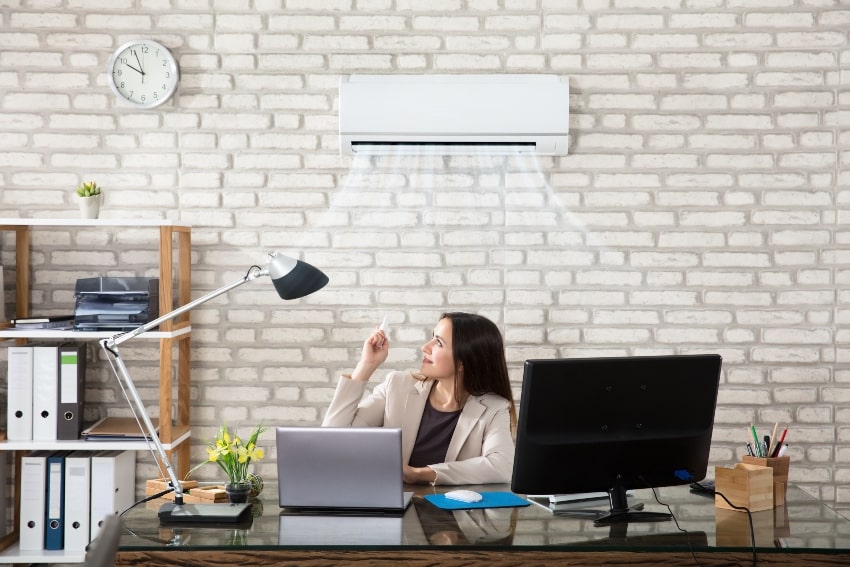
We should never take the air conditioning for granted. It helps to cool us down on those hot summer days, it provides better air quality for us, and it even helps us sleep better. There is more than just one cooling system. In fact, there are 8 different types, but the ductless mini-split air conditioner may be the best option if you’re thinking about an upgrade. Keep reading to learn the benefits of a mini-split AC and why it might be the best choice for your home, warehouse office, or garage.
Environmentally Smart
In today’s world, everyone is trying to be environmentally smart, from buying locally grown food to using more ecofriendly products in their households. When you invest in a ductless mini-split, you are being more energy efficient and reducing consumption. Some forced air systems can often be uneconomical because the ductwork can have tears, gaps, and other issues causing cooling loss.
No Ductwork Needed
Many older homes do not contain ductwork. This makes it nearly impossible to have central air in your household. Therefore, you may need mini-splits installed in your house. This may be seen as an advantage to some though. Ductwork can often become pricey and complex. When it comes to cooling and installing air into your older home, ductless mini-splits are the number one choice.
Budget Friendly
In today’s society, if you are trying to be frugal, we would definitely recommend having ductless mini-splits through-out your house. Mini-splits cost less than installing whole home ductwork. They also are energy efficient, and require less maintenance than your average window unit. You will typically find yourself paying between $4,000 and $6,000 to get a single head ductless mini-split installed. Multi head systems range from $6,000-$10,000 depending on the design and sizing. Looking for a company to install a ductless air conditioner in your house, garage, or warehouse office? Schedule a service with WestAIR Heating & Cooling today.
Health Conscious
The June flowers are still in bloom, so that means lots of itchy eyes, sneezing, and coughing. Ductless mini-splits lower your risk of breathing in contaminants in the air, help balance out humidity in the air, and there won’t be any ductwork toxins like pests, insect droppings, dust, and bacteria. Ductless mini-splits will transfer clean air directly in and out of your house.
Whether you’re working hard to fix your car in the garage or sending emails in your home office, you should be keeping cool, saving money, and breathing better air. Ductless mini-splits are effective, budget friendly, and high quality units. If you are looking to have one installed, contact our professionals at WestAIR heating & Cooling today.
This entry was posted in AC,Air Conditioning,Cooling and tagged Air conditioner, air conditioning, budget friendly, Cooling, Mini-split
Surprising Ways to Reduce Humidity in Your Home
Posted on by WestAIR Heating & Cooling
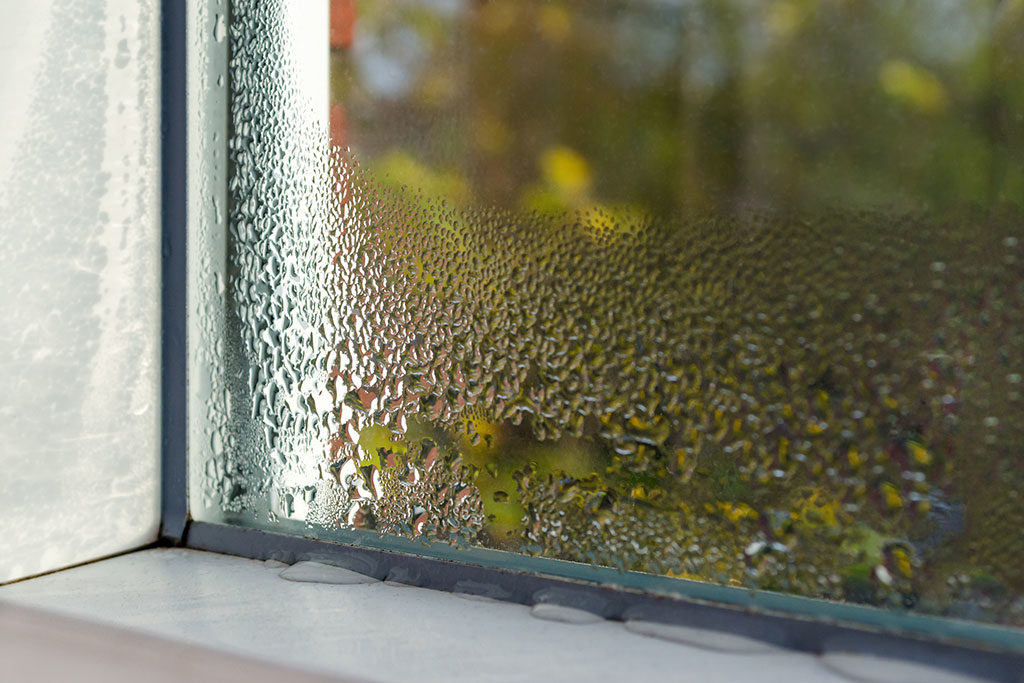
If you’ve been noticing foggy windows, musty odors, or clammy air throughout your home, chances are, your humidity levels are high. Humidity can both rob you of comfort and threaten your health. We don’t want you to suffer through the stifling heat, so we’ve outlined some surprising ways to reduce humidity in your home.
But first, a word about relative humidity (RH): RH measures water vapor relative to the temperature of the air. RH illustrates the amount of water in the air in relation to the total amount of humidity that could be held at the current temperature. Weather forecasts report relative humidity because it affects how we feel the temperature. Humid air feels warmer; dry air feels cooler. The ideal indoor relative humidity for a home is between 40 and 60 percent. If your RH is lower or higher, follow these tips:
Go old school with laundry
Dry your clothing outside. If you hang wet clothing inside to dry, all the moisture will evaporate into the air.
Accessorize with plants
Invest in some household tropical plants like Boston ferns, English ivies, Peace lilies, Reed Palms, or Tillandsias. These plants absorb moisture from the air instead of through the roots.
Take cold(er) showers
Hot showers create steam. Plan to bathe after exercising or spending time outside in the heat. You’ll be less tempted to jump into a steaming shower, and the cool water will feel refreshing. If nothing else, run the exhaust fan during and after showering.
Eat more salads
Hot weather provides the perfect opportunity to cook outside on the grill or eat cold meals like salads and sandwiches. Avoid boiling water; instead, save the heavy pasta for cooler weather. Your body will thank you in more ways than one.
Check the drainage route
In high humidity, your air conditioner or dehumidifier will produce a lot of condensation that has to go somewhere. Regularly empty the drip pan and be sure the drain lines are working properly so the water doesn’t evaporate back into the air.
Replace your flooring
Carpet is known to retain moisture. If you’ve tried all the above methods to decrease humidity, but still have a problem with moisture, consider replacing the carpet with hardwood flooring.
Benefits of proper humidity
With lower humidity levels, you could raise the thermostat setting a few degrees and still be comfortable. High humidity may cause headaches and asthma symptoms such as wheezing, shortness of breath, or a chronic cough. Proper humidity levels are easier on your respiratory tract and can:
- Reduce your cooling costs.
- Minimize wear on your HVAC system.
- Prevent dust mites, mold, bacteria, and mildew.
- Eliminate foul odors.
- Help you sleep better.
If you are still having trouble, consult with the professionals at WestAIR Heating & Cooling. We offer high-efficiency air conditioners to keep you cool in the muggy season and countless air quality accessories to reduce humidity. Schedule service to have a technician visit your home and recommend the right solutions for your family’s total indoor air comfort.
Contact us for more information.
This entry was posted in Air Conditioning,Cooling,Health Tips,Indoor Air Quality,Tips and tagged Air quality accessories, Asthma, Comfortable, Cooling, Dehumidifier, Energy efficiency, Energy savings, Grilling out, Humidity, HVAC, HVAC tips, Indoor air, Indoor air quality, Indoor air quality solutions, Muggy season
Indoor Air Quality Solutions
Posted on by WestAIR Heating & Cooling
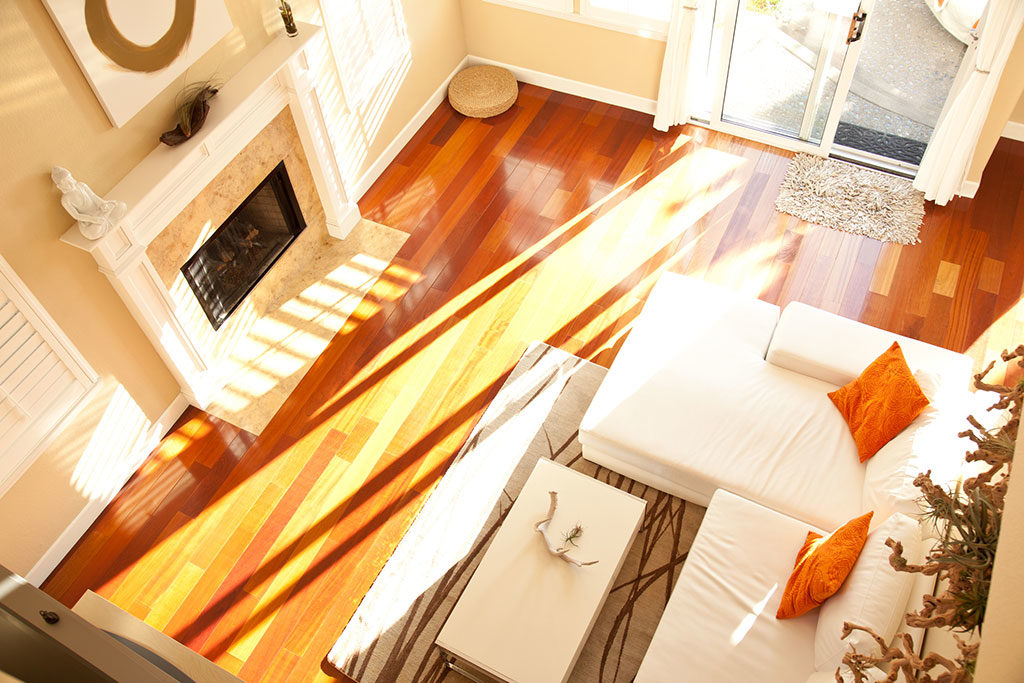
Ever looked at a ray of light streaming through your windows and noticed floating dust particles? The sunlight can reveal a lot about a room’s air quality. While it may be tempting to open up the windows and doors for a quick fix, we’re in the thick of ragweed season, so it probably won’t do you any favors. The EPA recommends upgrading your HVAC filter or using an air cleaner to reduce harmful airborne particles. Read our blog to learn why and discover some more indoor air quality solutions.
New filters
Your HVAC filter traps microorganisms, animal fur, hair, lint, dander, mold, pollen, dirt, and more so they don’t accumulate in your system or irritate your lungs. Check your filter once a month to see if it needs replacing. A clogged air filter can cause your HVAC equipment to overheat, short cycle, or even break down. At the very least, changing a dirty filter could lower your energy bills because your system won’t have to work twice as hard just to obtain adequate airflow.
Air cleaner
An air cleaner uses a filter to trap particles like bacteria, mold, ragweed, pet dander, and dust mites. It can even eliminate viruses, kill germs, neutralize fumes, and remove odors. Those with allergies, asthma, or sensitivity to chemicals can benefit from an air cleaner, which can remove up to 97 percent of pollen-sized particles.
Air exchanger
Every time you cook, shower, clean, and breathe, you release pollutants into the air. Airtight buildings are more energy efficient, but they need to somehow circulate air to maintain a healthy environment. Without adequate ventilation, old air will sit in enclosed spaces and accumulate dust, bacteria, mold, and other harmful particles.
An air exchanger provides refreshed, filtered air to reduce these allergens. Air exchangers use two fans, one to take stale air out, and the other to pull in fresh air, run it through a filter, and disperse it through the ductwork.
Dehumidifier
Humidity makes a room seem hotter than it is and increases the likelihood of mold and mildew growth. Drier air feels cooler. A dehumidifier can increase your comfort and allow you to raise the temperature a few degrees to save on cooling expenses. You can use a portable unit or install a whole house dehumidifier that works in conjunction with your HVAC system.
Dehumidifiers pull moist air over a cooling coil that condenses the moisture vapor into droplets. Moisture along the coils drips into a collection pan or directly down a drain.
Duct cleaning
In most HVAC systems, all the conditioned air passes through ductwork to supply vents in each room, and back through return registers to be conditioned again. Particles floating in the air could become trapped in the many channels and crevices behind your walls. If the ductwork is dirty, your indoor air will be, too, no matter what air cleaning accessories you install. During air duct cleaning, your technician will use powerful vacuums and brushes to dislodge debris and allow proper airflow.
Bonus tip
Plants clean the air of carbon dioxide and can remove cancer-causing formaldehyde, benzene, and other toxins. If you are looking for an inexpensive way to purify your indoor air, bring in some potted vegetation. They can improve your physical health as well as your mental well-being by reducing stress, building memory retention, and increasing concentration, which in turn boosts productivity.
At WestAIR, we care about you and your family’s health and comfort. We offer air quality solutions to rid your home or business of harmful pollutants and provide fresh oxygen, day in, and day out.
Contact us to learn more.
This entry was posted in Duct Cleaning,Indoor Air Quality,Tips and tagged Air circulation, Air cleaner, Air filters, Allergies, Asthma, Clean HVAC ducts, Comfortable, Cooling, Energy efficiency, Energy savings, Humidity, HVAC, HVAC tips, Indoor air quality, Indoor air quality solutions
HVAC Tips for Summer Trips
Posted on by WestAIR Heating & Cooling
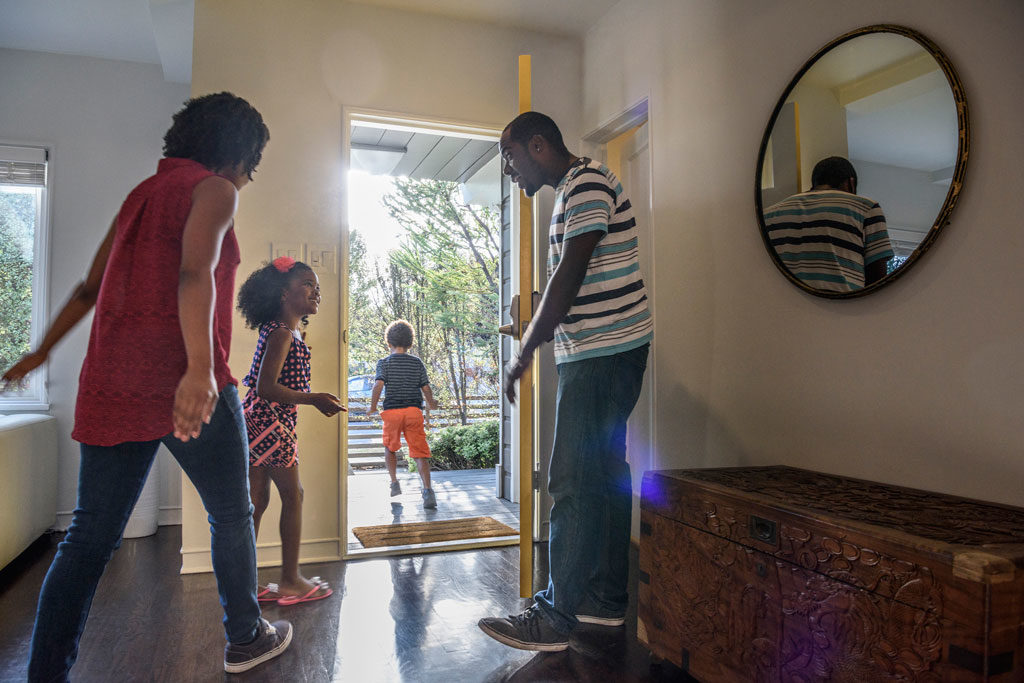
What exciting summer trips do you have planned? Before you pack up those bags and lock the door, take time to make sure your air conditioning will fare well while you are gone. Proper preparation will save you money on utility bills and keep your home’s air quality safe. So before you leave town, check out these HVAC tips for summer trips:
Don’t turn your HVAC system off
Many homeowners think they need to turn their cooling off to save money while they’re away in the summer. But you may end up spending more than you saved trying to cool your home back down when you return. An HVAC system doesn’t just regulate temperature, it also circulates air, controls humidity, and keeps indoor pollutants at bay. If you turn it off in the summer, humidity levels may rise, and you could come home to mold issues.
Program your thermostat
Before you leave, set the thermostat four degrees higher than your normal comfortable temperature, but keep it below 85 degrees. Check out the smart thermostats we offer with easy, seven-day programming and humidity control so you can rest assured your home is in good hands.
Prepare for rain
Install a full-house surge protector to save your system from power outages in case of a large summer storm or downed power lines. A surge protector will absorb the electrical overload and channel it into the ground so the power doesn’t damage your HVAC units.
Seal your home
Close all doors, windows, blinds, curtains, and storm shutters. Your home will stay cooler if you block the sun out, and conditioned air will remain inside if your home is sealed from the elements. Make sure supply and return registers are open so air circulates freely throughout the home.
Unplug
Unplugging electronics before you leave for vacation will help your system cool more efficiently. Some appliances still generate heat even if they aren’t being used. If you plan to be away for a significant amount of time, empty and unplug the refrigerator and turn down the water heater.
Give your equipment some attention
Even if you’ve just recently serviced your equipment, it’s important to check it before you leave it unattended. Replace the air filter if it’s dirty and clear the outdoor units of anything that would obstruct airflow. Pull away weeds, trim shrubbery, remove branches or twigs resting on the unit, and unclog the condensate drain if it is blocked.
Call WestAIR
Finally, schedule service so you don’t have to worry when you are states away enjoying vacation with your family. Our technicians will recharge the refrigerant if it’s low, clean the evaporator coils, and address any issues your air conditioning unit may have.
WestAIR Heating & Cooling provides cooling solutions to fit your home and budget. We offer energy-efficient A/C units, smart thermostats, filters, air cleaners, and more. Contact us today.
This entry was posted in Air Conditioning,Cooling,Tips and tagged A/C, A/C tune-up, Air circulation, air conditioning, Air filters, Comfortable, Cooling, Cooling system, Energy efficiency, Energy savings, HVAC, HVAC tips, Indoor air quality, Window curtains
Top Tips for Summer Cooling
Posted on by WestAIR Heating & Cooling
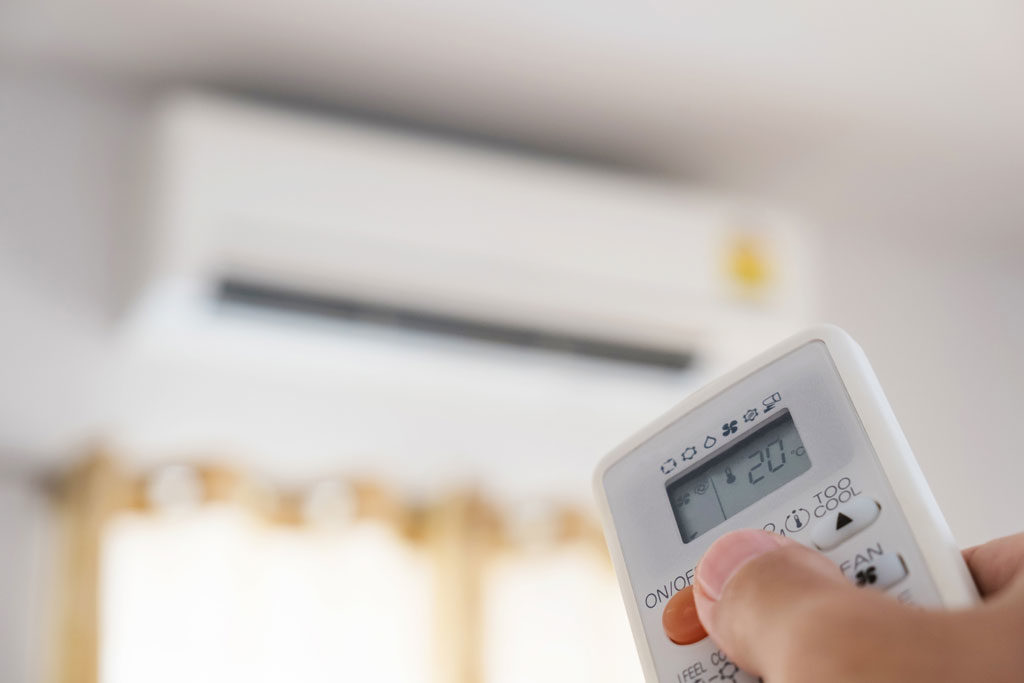
Warm weather is great for barbecues, days at the beach, and evening campfires, but not so great on your home’s cooling system. Some homeowners fight the urge to turn on their air conditioning, and others let it run, dreading their summer utility bills. Thankfully, there are options that will save you from the heat, give you peace of mind, and treat your pockets kindly. Here are some top tips for summer cooling:
Protect your home and equipment
Weatherizing your home isn’t just for winter. An air-tight system will save you money on cooling. Caulk your windows and doors so the cool air your system produces won’t escape. Up to 30 percent of home heat in the summer comes in through the windows. Use blinds, curtains, and drapes to block out the sun and keep daytime heat out.
Schedule maintenance with a qualified technician before the heat of summer. If you regularly service your HVAC equipment, it’ll last longer and run more efficiently. Proper DIY maintenance like keeping your outdoor unit clear of debris and regularly dusting your home will ensure dirt and dust don’t infiltrate your system and ruin your equipment. Check your filter once a month and replace as needed. If your air filter collects dust and debris, airflow will be restricted, and your unit will have to work harder.
Distribute air
Close off any unused rooms so you are only cooling the areas you use frequently, but make sure the rest of your home is well ventilated. Check that your supply and return registers aren’t blocked by furniture. Flip the switch on the motor housing of your ceiling fans to summer mode (counterclockwise). The blades will push the air straight down and create a wind-chill effect. Turn off your cooling system and open your windows in the evening to save money and provide your home with fresh air. Consider other indoor air quality solutions like an air exchanger or cleaner.
Avoid heat-producing appliances
Appliances that use heat can waste the cold air your cooling system produces. Instead of cooking in your oven, enjoy the outdoors by grilling more often. Air-dry your dishes and laundry instead of using the dishwasher and dryer. Take cool showers so your water heater won’t have to run as often. In addition, keep heat-producing appliances away from your thermostat so it reads the temperature accurately and doesn’t overcompensate.
If you’re still using incandescent light bulbs, replace them with LED lights. Incandescent bulbs create light by using electricity to heat up a filament until it glows. Ninety percent of the energy used to light up the filament is wasted on heat. LEDs create light through a cold process, producing little amounts of heat in comparison.
Take advantage of technology
According to the EPA, when used properly, a programmable thermostat can save you up to $180 a year in energy costs. With a programmable thermostat, you can set the temperature of your home higher when you leave for work or a trip and lower it shortly before you return.
Replace your old unit with a more efficient system. It may be more expensive up front, but a new air conditioner with a high SEER rating can give you maximum energy savings and reduce your carbon footprint. You’ll also enjoy peace of mind knowing your unit won’t likely break down on the hottest days of summer.
WestAIR Heating & Cooling provides energy-efficient Rheem A/C units, smart thermostats, filters, and other cooling solutions. We offer annual service maintenance and a variety of specials so you can save money and keep your HVAC system running smoothly. Contact us to learn more.
This entry was posted in AC,Air Conditioning,Cooling,Energy Savings and tagged A/C, A/C tune-up, Air circulation, Air cleaner, air conditioning, Air filters, Comfortable, Cooling, Cooling system, Energy efficiency, Energy savings, Grilling out, Hot days, HVAC, Indoor air quality, Indoor air quality solutions, Window curtains
Spring HVAC Checklist
Posted on by WestAIR Heating & Cooling

Some of the most pressing concerns for Minnesota homeowners are humidity levels, poor air quality, and increased utility bills. In the spring, those HVAC issues are a hot topic as the warm weather approaches. Follow our spring HVAC checklist to inspect and prepare your equipment for summer.
- Turn off power to your outdoor unit from the electrical disconnect and clear away plants, weeds, fallen leaves, and branches. Use a garden hose to gently rinse off the condenser coils. If the unit doesn’t get enough air or the coils are covered in dirt, it could overheat.
- Change your filter, and plan to do so monthly when your furnace and air conditioning are in use. Filters keep dust and dirt from entering your system, extend equipment life, reduce energy costs, and improve indoor air quality.
- Clean return air vents and floor registers in your home with a vacuum. If dust gets in the system, it could compromise energy efficiency and air quality. For a deeper clean, remove the vent, wrap a butter knife in a rag to scrub the individual grill spaces, and rinse with warm water and soap.
- Check the batteries in your carbon monoxide detector(s) and replace if needed so you know it is working properly to keep your family safe.
- Caulk windows and doors to minimize air leakage so the cool air your system produces isn’t wasted. According to the U.S. Department of Energy, the best time to apply caulk is in low humidity when the temperature is about 45 degrees, making spring the ideal time for this simple maintenance.
- Dust and mop so dirt, allergens, and other airborne particles don’t end up in your ductwork. Schedule duct cleaning if you haven’t done so in a while or you suspect your ductwork is dirty.
- Clean windows, blinds, and curtains so you can let the sunlight into your home and enjoy a clear view of the outdoors without producing a cloud of dust each time you open them.
- Dust ceiling fan blades and reverse their direction to rotate counterclockwise so they’ll blow air straight down and produce a wind-chill effect. Most fan models have a small switch on the motor housing.
- Power up your air conditioning to see if everything is working properly. You should visually inspect the unit for any leaking chemical fluids and check your home for burning, gas, or musty odors.
- Schedule service with your HVAC contractor for a thorough inspection. They’ll clean, lubricate, and troubleshoot your equipment so it will run smoothly and efficiently.
Midwest summers can be particularly hot and sticky, and homeowners can spend up to 250 dollars a month running their air conditioner. WestAIR Heating & Cooling is here to help you save money in every season with a variety of specials on our services. We also provide indoor air quality solutions so you can minimize spring allergies and live comfortably. If you are having trouble with your HVAC system, contact us for repair and replacement services.
This entry was posted in Air Conditioning,Duct Cleaning,Indoor Air Quality,Repairs,Spring and tagged A/C, air conditioning, Allergies, Asthma, Clean HVAC ducts, Cooling, Duct cleaning, Dust, Energy savings, Hot weather, Humidity, HVAC, HVAC checklist, Indoor air, Indoor air quality, Indoor air quality solutions, Indoor humidity
Air Duct Cleaning & Maintenance
Posted on by WestAIR Heating & Cooling
Clean air ducts help keep dirt, dust mites, and mold out of the air of your home. Turning on a contaminated or clogged heating and cooling system can cycle these potentially harmful particles into the air you breathe and decrease indoor air quality. How do you know if you need an air duct cleaning service?
Check with your local HVAC technician to find any visible mold or excessive dust and debris inside your ducts, or if there has been a recent infestation of rodents or insects.
Keep your ducts clean by practicing proper home habits.
• Change your furnace and air conditioner filters regularly.
• Check to make sure you use the right air filters that fit your equipment.
• Make sure your HVAC equipment is efficient and regularly maintained.
• Dust and vacuum your home regularly. Vacuuming can increase the amount of dust in the air, so it’s worth upgrading to a high efficiency (HEPA) vacuum cleaner.
• Seal off supply and return registers during home renovation or construction.
• Maintain your humidifier to prevent mold inside the home.
• Repair leaks and water damage promptly.
• Make sure ducts are sealed properly and insulated in attics and crawl spaces.
• Invest in an Aprilaire Air Cleaner to reduce the amount of dust circulating around your home. Air cleaners trap 98 percent of visible dust and irritating particles, and 97 percent of airborne pollen. Attached to your furnace, the filters remove matter through the blower fan and return clean air back into the rooms of your home.
Air duct cleaning is not an annual service, but might be needed after some time, especially if you have pets, smoke, sensitive allergies, respiratory needs, or live in a humid environment.
At WestAir Heating & Cooling, we use a specialized Rotobrush cleaning system to clean air duct systems. This “source removal” cleaning method utilizes powerful vacuums and brushes to dislodge any debris that stick to the surface.
If you think you might need your ducts cleaned or worry about your indoor air quality, contact us for more information.
This entry was posted in Duct Cleaning,Health Tips,Indoor Air Quality and tagged Air cleaner, Air cleaning, Air ducts, Air filter, Air filtration, Air quality, Allergies, Aprilaire, Clogged ducts, Cooling, Dander, Debris, Dehumidifier, Dirt, Dirty ducts, Duct cleaning, Duct maintenance, Ducts, Dust, Heating, Humidifier, HVAC, Mold, Moldy ducts, Particles, Pets, Pollen, Rotobrush, Vacuum
Extend the Life of your HVAC Equipment
Posted on by WestAIR Heating & Cooling
Having a working furnace and air conditioner is crucial during the winter and steamy summer days. Don’t run it and forget about it, as wear and tear is inevitable. You can save on costly replacements or repairs through proper maintenance. Extend the life of your HVAC equipment by following these steps.
Heating & Cooling Tips
1. Follow manufacturer instructions.
2. Have your systems checked every year by a qualified service technician. It’s best to schedule maintenance in the spring and fall. Technicians are busy in the hot and cold months, and you don’t want to wait until there’s something wrong.
3. Check your filters. Replace your filters every 30 to 60 days. If you have a permanent filter, clean it with mild detergent every 30 to 60 days. This is the most important step to increase the life of your equipment. Dirty filters make heating and cooling units work harder, which will shorten the life with use.
4. Keep your doors and windows closed. Your air conditioner and heater will work harder when there is more air to circulate. Make each space with ventilation smaller by closing your doors. This is the also the case for houses with boilers or window air conditioners. Rather than labor to regulate air temperature in the whole house, your a/c only needs to cool the individual room. With a boiler system, it’s efficient to close off rooms without a radiator.
5. Caulk and weather-strip air gaps on windows. This step is good for your wallet and your HVAC equipment. Old houses are especially drafty, so locate the air leaks by finding damaged glazing or old caulking. Another trick is to turn off all appliances and light an incense stick in each room. Turn on your exhaust vent if you have one. Then hold your incense stick close to windows, doors, and walls for a noticeable change in the smoke. If you have drafty doors, invest in some door draft blockers.
6. Use your thermostat. It’s a myth that you should keep your thermostat at a steady temperature. Most of the time, your furnace will be working harder to maintain the heat at a steady rate. Instead, program your thermostat for a comfortable temperature while you are home and ten degrees less while you are away. However, fidgeting with the thermostat will be less efficient, even if it seems harmless to put it up or down a degree or two. Keep it on a consistent schedule.
Energy Efficiency
Winter
1. Open window shades when windows are facing the sun. Let the sun warm your house naturally, putting less work on your furnace. The vitamin D is good for you this time of year!
2. Take advantage of using your oven. Slow cook your chicken and oven roast your veggies. The extra warmth will give your furnace a break. Your oven will be working two jobs at once without the added cost.
Summer
1. Close window shades facing the sun. Opposite of wintertime, you want to block the sun from adding extra heat to your house. Make sure to put your plants outside so they don’t suffer from the lack of sun!
2. Be smart with your other appliances. When you are doing laundry, hang up your clothes on a line to save energy or strain on your a/c. Why work an appliance that uses heat when it’s already hot outdoors? Washing clothing shouldn’t be an issue, though, if you stick to cold water. If it’s humid out, dry your clothes during the coolest part of the day: around dawn. Same goes for dishwashers.
3. Use your exhaust fans when cooking. Whether you plan on using the oven or stovetop for dinner, turn on the exhaust fan to let out the excess moisture and heat. Or maybe fix a cold sandwich or salad. In return, your air conditioner won’t have to work as hard! Same goes for your bathroom, but not everyone likes cold showers!
Annual Service Maintenance
Spring is around the corner, so it’s time to schedule your maintenance visit with WestAir Heating & Cooling.
Our technician’s maintenance list will take care of most things you cannot do yourself to ensure your equipment is running smoothly for summer and winter:
Annual Service Maintenance list:
• Clean furnace and check operation/filter
• Clean air conditioner and check operation
• Clean outdoor condenser and check refrigerant level
• Clean air exchanger filters and core
• Check radiant in-floor pressures and go over system
• Check humidifier filter and drain line
• Check unit heater operation
• Clean fireplace and check operation
Contact us for more information on heating, cooling, or our service maintenance!
This entry was posted in AC,Air Conditioning,Cooling,Furnace,Heating,Winter and tagged A/C, A/C, Air conditioner, Air filters, Air quality, Annual check-up, Caulk, Clogged filter, Cold air, Cooking, Cooling, Cost, Dirty, Dishwasher, Door draft stopper, Doors, Drafty windows, Dryer, Efficiency, Energy efficient, Exhaust fan, Fall, Filter, Filters, Furnace, Furnace filter, Heater, Heating, HVAC, Laundry, Maintenance, Quality, Save money, Shower, Spring, Summer, Sunshine, Sustainability, Thermostat, Windows, Winter
Subscribe to Our Blog
With RSS feeds, you don't have to visit our site everyday to keep up to date. Simply subscribe to our blog via RSS or Email and our posts will come to you!
Search Blog Posts
Categories
Archives
- April 2024 (1)
- February 2024 (1)
- January 2024 (1)
- February 2023 (1)
- January 2023 (1)
- December 2022 (1)
- November 2022 (1)
- October 2022 (1)
- September 2022 (1)
- August 2022 (1)
- July 2022 (1)
- June 2022 (1)
- May 2022 (1)
- April 2022 (1)
- March 2022 (1)
- February 2022 (2)
- December 2021 (1)
- November 2021 (1)
- October 2021 (1)
- September 2021 (1)
- August 2021 (1)
- July 2021 (1)
- June 2021 (1)
- May 2021 (1)
- April 2021 (1)
- March 2021 (2)
- January 2021 (1)
- December 2020 (1)
- November 2020 (1)
- October 2020 (1)
- September 2020 (1)
- August 2020 (1)
- July 2020 (1)
- June 2020 (1)
- May 2020 (1)
- April 2020 (1)
- March 2020 (1)
- February 2020 (2)
- November 2019 (1)
- August 2019 (2)
- June 2019 (1)
- May 2019 (1)
- April 2019 (1)
- March 2019 (1)
- February 2019 (1)
- January 2019 (1)
- December 2018 (1)
- November 2018 (1)
- October 2018 (1)
- September 2018 (1)
- August 2018 (2)
- July 2018 (1)
- May 2018 (1)
- April 2018 (1)
- March 2018 (1)
- February 2018 (1)
- January 2018 (1)
- December 2017 (3)
- November 2017 (2)
- October 2017 (2)
- September 2017 (2)
- August 2017 (1)
- July 2017 (2)
- June 2017 (3)
- May 2017 (2)
- January 2017 (4)
- November 2016 (1)
- September 2016 (3)
- July 2016 (2)
- June 2016 (2)
- May 2016 (4)
- April 2016 (1)
- March 2016 (2)
- February 2016 (2)
- January 2016 (1)
- August 2015 (1)
- July 2015 (1)
- June 2015 (3)
- May 2015 (1)
- July 2014 (2)
- June 2014 (1)
- April 2014 (1)
- March 2014 (1)
- February 2014 (2)
- October 2013 (1)
- May 2013 (1)
- March 2013 (1)
- February 2013 (1)
- August 2012 (1)
- July 2012 (2)
- June 2012 (2)
- May 2012 (2)
- March 2012 (1)
- February 2012 (1)
- December 2011 (1)
- November 2011 (1)
- October 2011 (1)
- September 2011 (1)
- August 2011 (1)
- June 2011 (1)
- May 2011 (1)
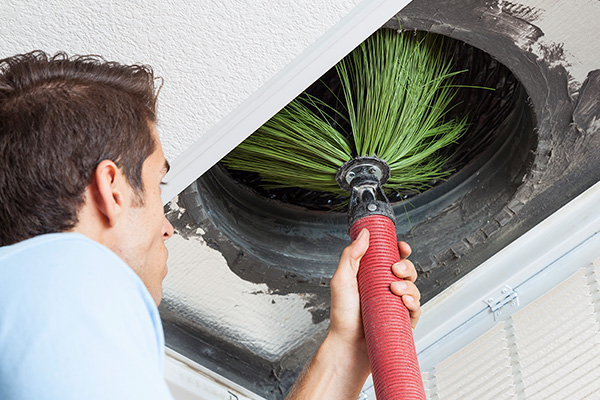
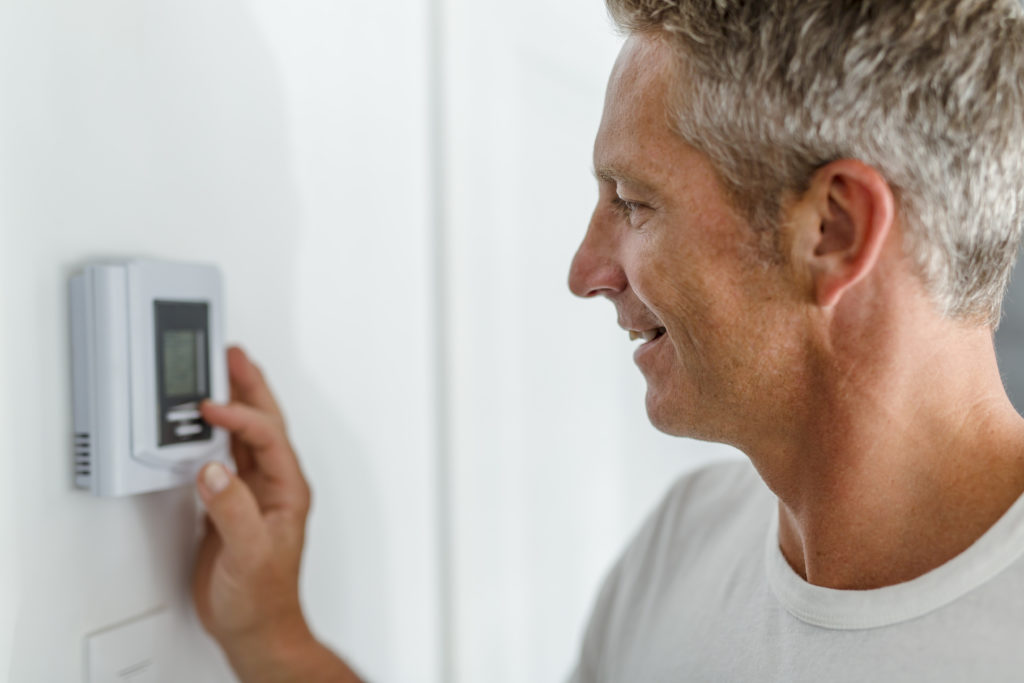
 Subscribe
Subscribe Subscribe
Subscribe